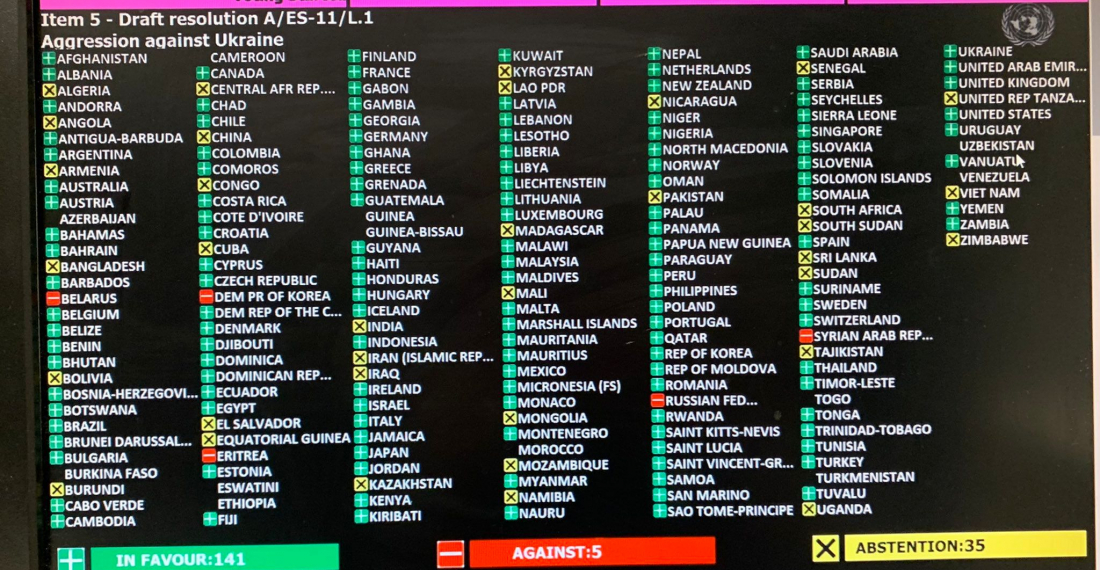In a historic vote in the United Nations General Assembly condemning Russian aggression against Ukraine on Wednesday (2 March), Putin's Russia found itself isolated from the rest of the international community, with only North Korea, Belarus, Eritrea and Syria supporting its position in the 193 member world body.
The General Assembly, meeting for the first time in special session since 1997 approved by a huge majority a resolution deplores Russia's "aggression against Ukraine."
The resolution demands that Russia “immediately, completely and unconditionally withdraw all of its military forces from the territory of Ukraine within its internationally recognized borders.”
Wednesday’s resolution stated that Russia’s military operations in Ukraine “are on a scale that the international community has not seen in Europe in decades and that urgent action is needed to save this generation from the scourge of war.” It “urges the immediate peaceful resolution of the conflict” and reaffirmed the assembly’s commitment “to the sovereignty, independence, unity and territorial integrity of Ukraine within its internationally recognized borders.”
It was sponsored by 96 countries.
In the ensuing vote 141 countries voted for the resolution, 5 voted against and 35 abstained. 12 countries were absent.
The vote was a stark revelation of Russia's isolation in the international community as it pursues its aggression against Ukraine.
In a similar situation in 2014, when Russia annexed Crimea, a UN General Assembly resolution condemning the move received the support of 100 countries. This time the number was up by 41 countries, sending a resounding diplomatic message. The number of abstentions in 2014 was 58, compared to 35 this time. 24 countries were absent in 2014, this time only 12.
An analysis of the voting also shows some interesting nuances. Seven countries who voted with Russia in 2014 this time abstained, namely Armenia, Bolivia, Cuba, Nicaragua, Venezuela, Sudan and Zimbabwe. Only three countries voted with Russia on both occasions: Belarus, Syria and North Korea. A fourth country, Eritrea, in 2014 abstained.
Azerbaijan, which in 2014 voted against the Russian position this time decided not to participate in the voting at all and was absent, giving as an excuse the fact that it currently holds the Chairmanship of the Non-Aligned Movement (NAM). However nearly two thirds of 120 states members of the Movement voted against the Russian position.
The six GCC countries, including UAE which currently holds the Chairmanship of the UN Security Council, all voted in favour of the resolution condemning Russia.
In diplomatic quarters there was some disappointment that large countries such as China, India and South Africa, were amongst those abstaining. These countries who often claim to be the champions of small countries on the international stage, are now seen to have stood aside as a small country was being attacked by a much larger neighbour.






